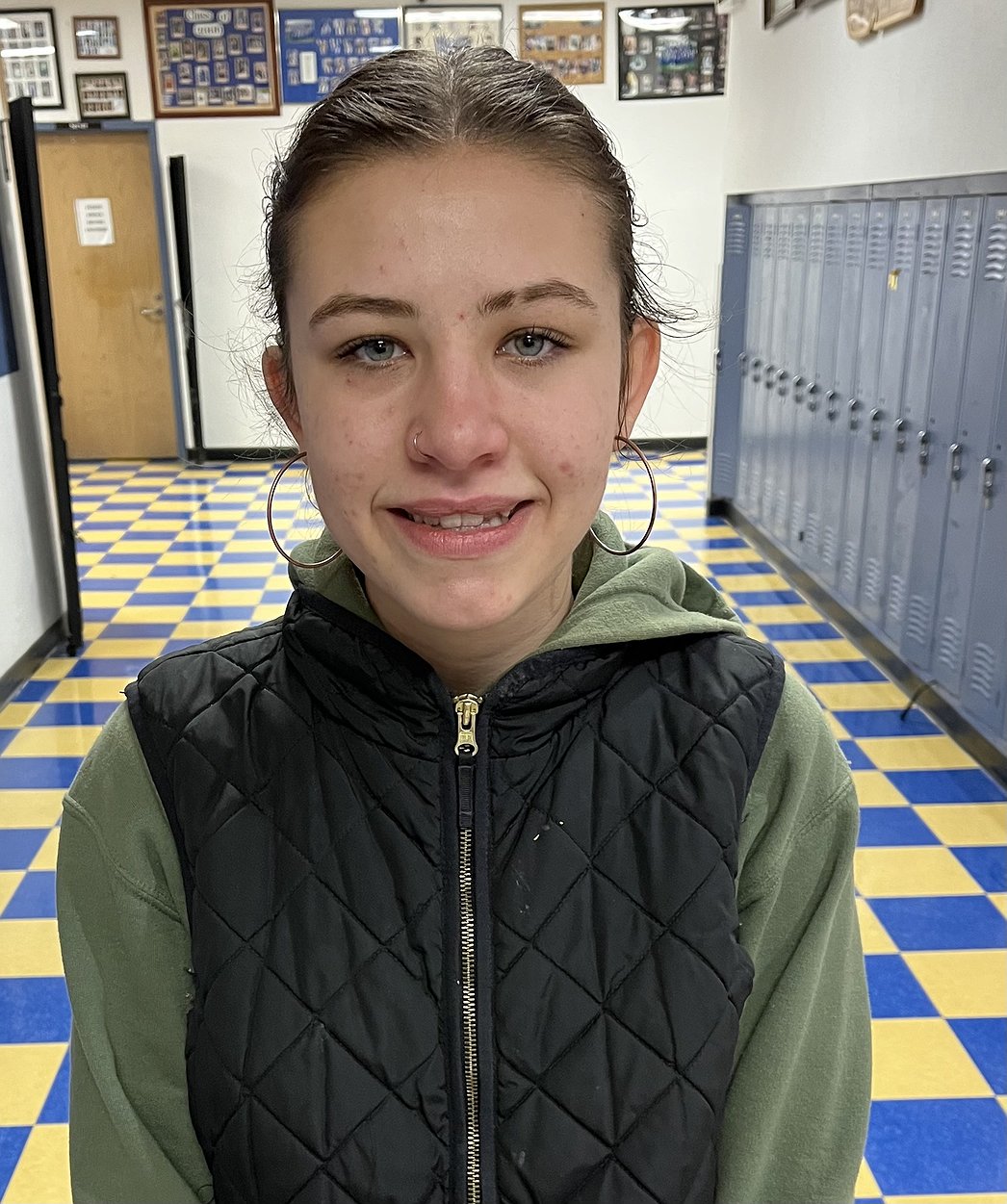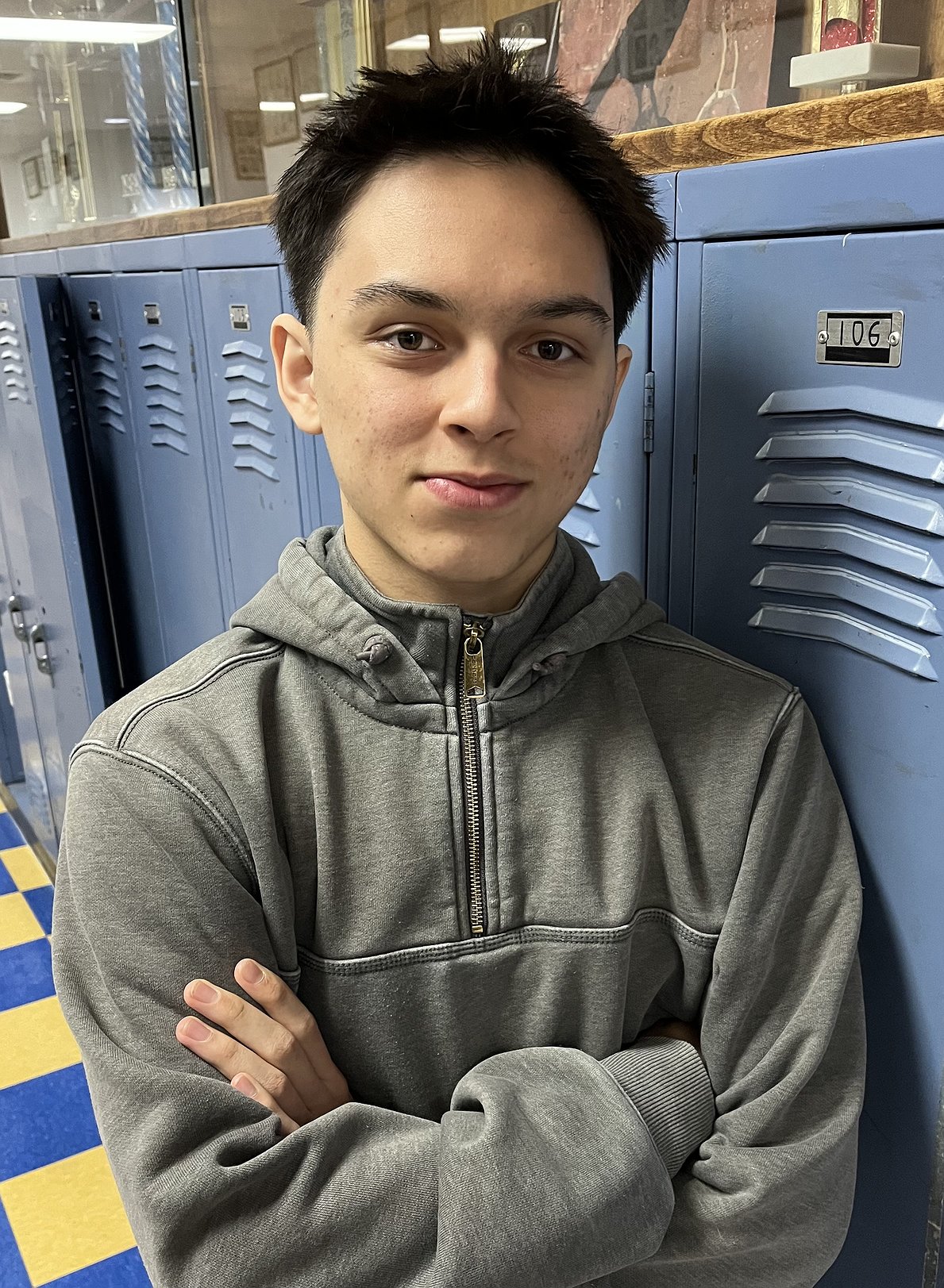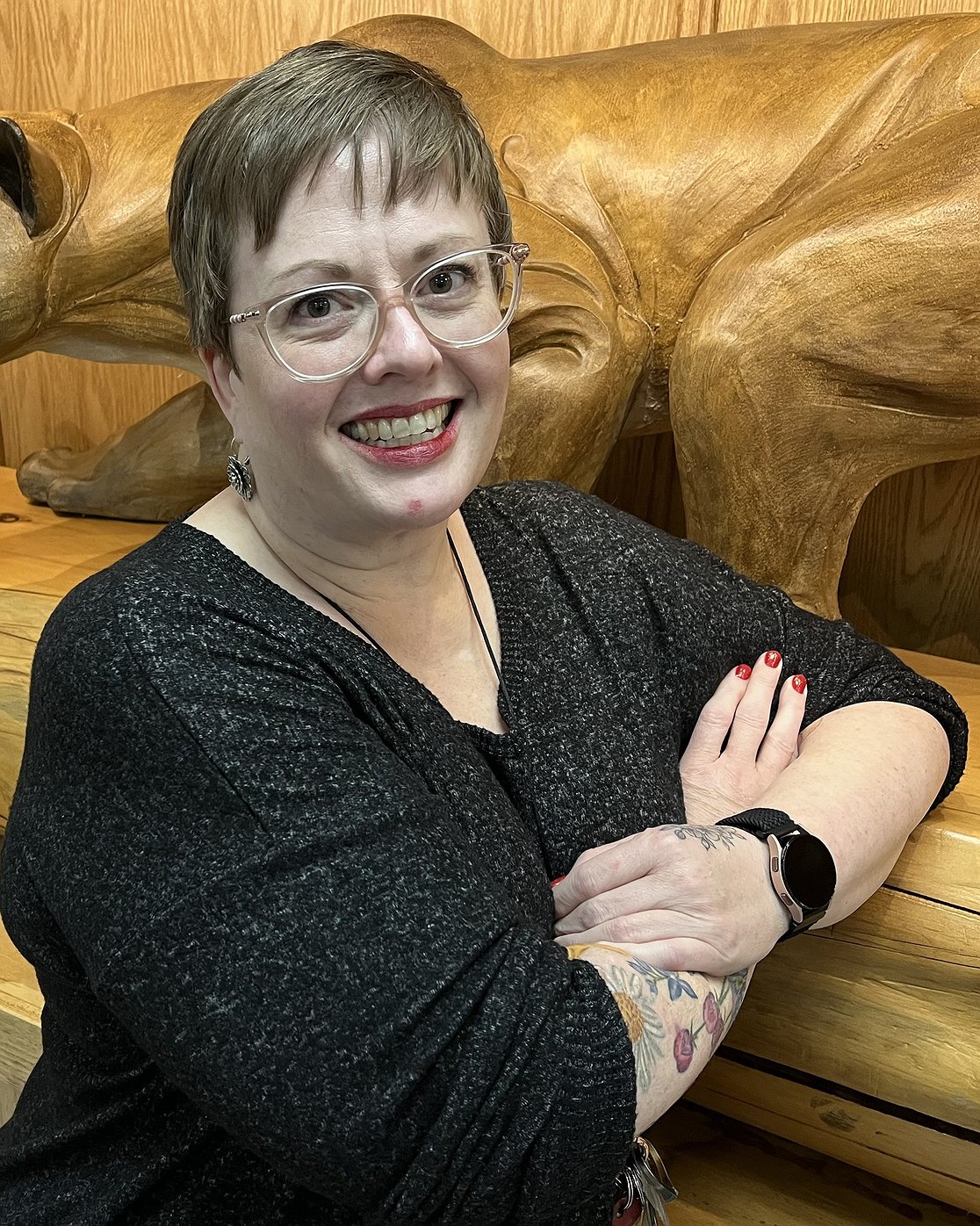CFHS students get hands-on start on the future
On most Fridays, Clark Fork High School upperclassmen are spread across North Idaho at more than a dozen workplaces, cutting rock at Stutzke's Stone or feeding Clydesdale horses at Parnell Ranch or servicing hydroelectric turbines with Avista Utilities.
Eyeing a career as an esthetician or cosmetologist, Cherish Christensen, 17, enjoys connecting with her community at Clark Fork’s Shear Inspiration Salon, a volunteer business partner who’s allowing her to obtain on-the-job cosmetology training with a staff mentor.
“I think that's really cool,” Christensen said.
The picturesque, rural community of Clark Fork embraces a style of authentic learning that gives seniors (and some juniors) workplace experience that’s opening doors to popular post-graduation options — trade schools, local internships and apprenticeships, or a direct path to employment.
After graduation, Christensen plans to become a licensed skin care professional and remain in North Idaho, perhaps Sandpoint or Coeur d'Alene.
Longtime CFHS English teacher Becca Palmer is wholeheartedly committed to the benefits of the program, launched back in 2015 as one of the school’s experiential learning tracks. Budget constraints and a decrease in student enrollment ended experiential learning but her brainchild — called job shadowing or independent track — survived, thanks to their commitment to innovative opportunities.
“I am incredibly proud of this program because I have been told by so many graduates how incredibly beneficial it has been to them,” said Palmer, who serves as senior project coordinator.
The high school’s semester-long “job shadowing” experience pairs teenagers with Clark Fork, Sandpoint, Coeur d’Alene, Spokane and Montana employers. This year, 12 seniors and three juniors are expected to complete 40 hours of work between September and December. Their progress is closely monitored and, at the conclusion of their experience, they’re assessed by a panel of judges during a five-minute presentation.
Completion of their job shadow experience meets Idaho’s senior project requirement. Usually, senior projects across the state include things like academic research papers or comprehensive work portfolios.
But state leaders see value in the experiential learning model, like Clark Fork’s. This year, they’ve proposed changing graduation requirements to include a project that emphasizes experiences like job shadowing or interviewing a career professional, and would be called the “Future Readiness Project.” It still needs Idaho State Board of Education and Legislature approval.
To meet the state’s graduation requirement, Palmer said, “job shadowing is the most relevant thing we could do for them.”
It offers a safe way to explore a career interest, create connections outside of their community and develop workplace soft skills: teamwork, communication and responsibility. At times, the value of that practical experience may guide them away from a hands-on job (dental hygienist, carpenter or HVAC technician) toward professional or administrative careers.
“They feel a step ahead of their peers and wherever they go, whether it's right into the workforce, to college or into a vocation program, they already have a level of knowledge that their peers don't have,” Palmer said.
John Paul Dix, 17, is working at Stutzke's Stone, a hands-on, physical occupation where they’re splitting rock on the “big saw” and stacking it on pallets.
“I didn’t know what to expect going into it. I just knew that I wanted to be on a job site and work with my hands,” Dix said. “I didn't even know how to use a hammer and a nail the first day, and the guy had me hammering nails on the pallets to put the cage on it. And it was kind of embarrassing, actually. I'm a city boy.”
Dix ultimately plans to work for his father’s public insurance adjusting business in another state.
“Our kids are very mature, very respectful, very willing to take direction,” Palmer said, so interest from area businesses and mentors is growing. They’re making cheese and butter at an organic dairy; learning about holistic medicine practices and women’s health; repairing turbines at a nearby hydroelectric dam; firefighting with the United States Department of Agriculture; and using equestrian therapy to improve lives.
This senior class is more focused on hands-on, vocational occupations, Palmer said, like automotive repair, cosmetology, landscaping, ranching, farming and brick masonry. If you are passionate about mentoring and making a positive impact on a student's life, get involved and reach out to Palmer at rebecca.palmer@lposd.org.
“It's just so valuable,” she said.
The 2024-25 cohort of business partners include: Aspen Ridge Landscaping, Parnell Ranch, East Bonner County Library, Stutzke's Stone, A Shear Inspiration, Bonner County Daily Bee, Avista, Hays's Auto Shop, Northwest Handmade, Kootenai Elementary school nurse Kristina Gavin, Knapp Masonry, North Idaho College CNA Course, North Idaho Animal Hospital, In and Out Painting and Annie's Orchard/Wildfire Landscaping.
“Community support is vital for workforce training programs. We’re thankful that so many businesses in our region are willing to take the time to mentor our young people,” said Dr. Becky Meyer, Lake Pend Oreille School District superintendent.







